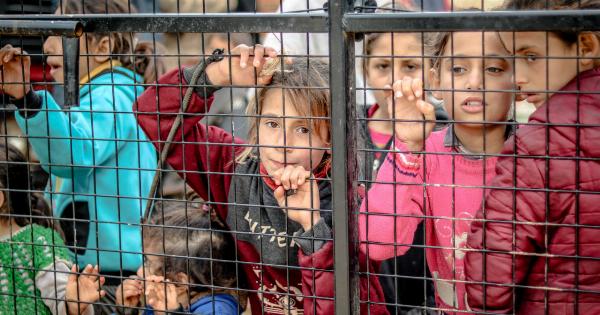Cystic Fibrosis (CF) is a genetic disorder that affects the lungs and digestive system. It is characterized by the production of thick, sticky mucus that clogs the airways and leads to frequent lung infections.
September 8th is recognized as World Cystic Fibrosis Day, a day dedicated to raising awareness and supporting those living with this chronic illness.
What is Cystic Fibrosis?
Cystic Fibrosis is caused by a defective gene called the cystic fibrosis transmembrane conductance regulator (CFTR) gene. This gene controls the flow of salt and fluids in and out of cells.
In individuals with CF, the CFTR gene is faulty, leading to the buildup of thick, sticky mucus in the lungs and other organs of the body.
Signs and Symptoms
The signs and symptoms of cystic fibrosis can vary from person to person, but they primarily affect the respiratory and digestive systems. Some common symptoms include:.
- Chronic coughing and wheezing
- Frequent lung infections
- Shortness of breath
- Poor growth and weight gain
- Frequent greasy, foul-smelling stools
- Difficulty in bowel movements
- Salty-tasting skin
- Nasal polyps
These symptoms often appear in early childhood, but they can also manifest later in life. The severity of symptoms can also vary widely among individuals, making early diagnosis and intervention crucial for effective management.
Diagnosis
Diagnosing cystic fibrosis typically involves a combination of different tests. These may include:.
- Newborn screening
- Sweat test: Measures the amount of salt in sweat
- Genetic testing: Identifies mutations in the CFTR gene
- Lung function tests
- Imaging tests: X-rays, CT scans, or ultrasounds
- Stool analysis
- Physical examination and medical history
Early diagnosis allows for prompt treatment and better management of the disease.
Treatment and Management
While there is no known cure for cystic fibrosis, advancements in medical care have significantly improved the quality and length of life for individuals with CF. Treatment and management strategies focus on:.
- Airway clearance techniques: These techniques help loosen and remove the thick mucus from the lungs.
- Medications: Inhalers, antibiotics, and enzyme supplements can help manage symptoms and prevent complications.
- Exercise: Regular physical activity can help improve lung function and overall well-being.
- Nutrition: A high-calorie, high-protein diet is often recommended to offset the difficulty in absorbing nutrients.
- Mental health support: Living with a chronic illness can be challenging, and proper psychological support is essential for individuals and their families.
- Lung transplant: In severe cases, a lung transplant may be considered.
With ongoing research and advancements in treatment approaches, the outlook for individuals with cystic fibrosis continues to improve.
World Cystic Fibrosis Day – September 8th
World Cystic Fibrosis Day is observed annually on September 8th to raise awareness about cystic fibrosis, honor those battling the disease, and support ongoing research efforts.
The day also serves as a reminder to spread knowledge and understanding of this condition.
Several events and activities are organized around the world on this day to mark the occasion. These include fundraising walks, awareness campaigns, educational programs, and public lectures.
Organizations and individuals worldwide come together to generate support and advocate for the needs of those living with cystic fibrosis.
Supporting Cystic Fibrosis Research
Research plays a crucial role in understanding cystic fibrosis better, developing improved treatments, and eventually finding a cure.
Donations made to reputable organizations on World Cystic Fibrosis Day can contribute to funding ongoing research efforts.
Additionally, individuals can support the cause by volunteering their time and skills, organizing fundraising events, or simply spreading awareness through social media platforms and personal networks.
Conclusion
World Cystic Fibrosis Day on September 8th serves as a powerful reminder of the impact of cystic fibrosis on individuals and their families.
It is a day to honor those living with CF, support ongoing research, raise awareness, and strive for improved treatments and ultimately a cure. By coming together and supporting the cystic fibrosis community, we can make a difference in the lives of those affected by this chronic illness.






























